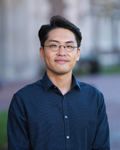2019, 2023
Hyeok Hweon Kang
- Assistant Professor
- Washington University in St. Louis

Abstract
Military workshops became the center of material and knowledge production in Korea from the seventeenth to the nineteenth centuries. A wide-ranging cast of artisans, officers, and technologists found work in the military institutions of Seoul, tasked at first with the manufacture of munitions such as muskets and powder, but also with engineering city walls, royal tombs, and pontoon bridges, and with testing state-of-the-art clocks, screw pumps, and steam engines. This project examines the origins of such military-technical productivity from the perspective of science and technology studies. It recovers the military in premodern Korea as a vibrant site of making and knowing, a milieu where technical knowledge was created, exchanged, and practiced. By foregrounding this hub of crafts, the project explores neglected registers of science and technology that existed outside of Europe and before the advent of the industrial age.
Abstract
What happens if we tell the history of engineering backwards, that is, not from Western Europe its current heartland—but from Choson Korea (1392-1910)—a periphery on the other end of Eurasia? My book manuscript answers the question by uncovering the knowledge of Korean artisans and practitioners. To date, historians have traced modern engineering back to Renaissance artists like Leonardo da Vinci or French officers at the cusp of the Revolution. I argue, however, that the rise of a systematic approach to making was a global phenomenon. If told so far with Western traits, the Korean story reveals a commensurate yet distinctive system of making, which critically expands our understanding of science and technology in the early modern world.

